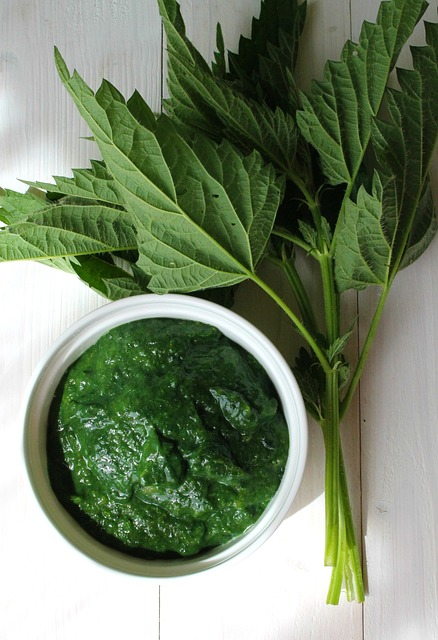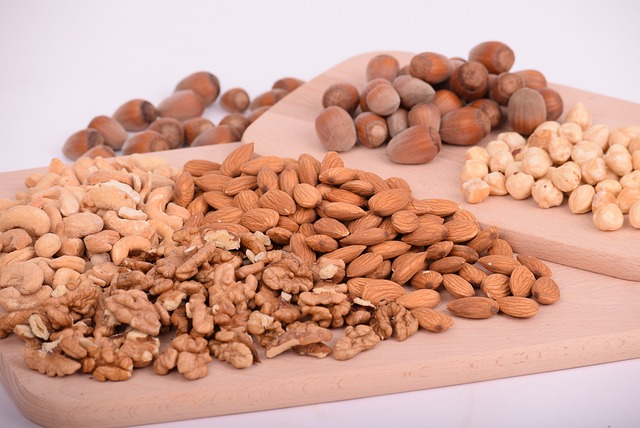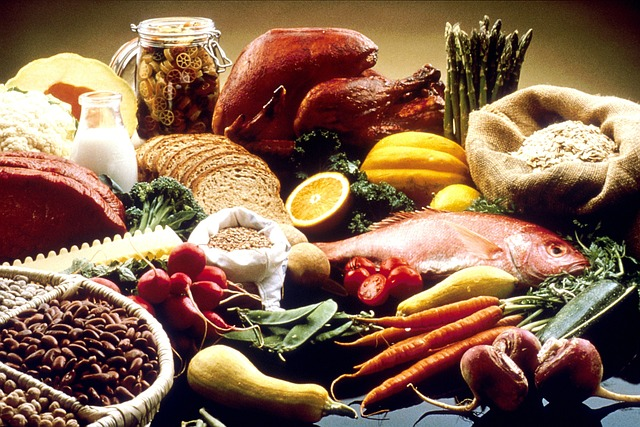Eating Right While Pregnant: Essential Nutrients for a Healthy Diet
Pregnancy can present many challenges; from the physical and emotional demands to the dietary needs. Eating right while pregnant is essential in order to ensure a healthy and happy pregnancy, both for the mother and baby.
This article provides vital information on the essential nutrients necessary for a healthy diet during pregnancy, as well as guidelines concerning food groups, portion sizes, and nutrient-rich meal ideas. Furthermore, it offers tips on how to remain active and maintain a balanced weight throughout the nine months of pregnancy.
With this comprehensive guide, you will be well prepared to navigate the journey of pregnancy while feeling your best.
Folate and Folic Acid – Prevent Brain and Spinal Cord Birth Defects
Folate and folic acid: essential nutrients for pregnant women. But why? These two vitamins help to prevent neural tube defects such as spina bifida. Folate is found in leafy greens, legumes, and citrus fruits, while folic acid is the synthetic form of folate. To ensure a healthy pregnancy, 600 micrograms (mcg) of folate are recommended daily – but how can you get it? Eating a balanced diet rich in folate-rich foods like leafy greens, legumes, and citrus fruits will do the trick – but taking a folic acid supplement is also recommended to make sure all necessary nutrients are obtained.
So what’s so great about taking a folic acid supplement during pregnancy? Well, it helps to form the brain and spinal cord of your developing fetus – preventing birth defects like spina bifida or anencephaly. It also reduces risk of low birth weight and preterm birth by providing essential nutrients for weight gain such as iron, calcium, protein…and more!
In conclusion, start taking that folic acid supplement at least one month before conception and for three months after! And don’t forget those delicious sources of folate like leafy green vegetables, legumes, citrus fruits…even whole grain toast! Pregnant women need enough folate and folic acid in their diets to ensure a healthy pregnancy – so eat up!
Calcium – Strengthen Bones
Calcium is essential for pregnant women and their little ones. To make sure mums-to-be get enough of this vital nutrient, they should eat a balanced diet with plenty of calcium-rich foods like whole grains, fat-free or low-fat dairy products, breakfast cereals and orange juice.
Dairy products such as milk, cheese and yogurt are great sources of calcium – plus phosphorus, vitamin D, protein, vitamin A and B vitamins too! Yogurt is especially beneficial because it has more calcium than most other dairy options – not to mention probiotic bacteria.
Pregnant teenagers need 1,300 milligrams of calcium each day while lactose intolerant mums can still get the right amount by consuming calcium fortified foods or taking supplements. The amount needed from a supplement should be decided after considering how much is already consumed through food sources.
In short, pregnant women must consume enough calcium to keep themselves healthy and ensure their baby’s wellbeing too! Eating a variety of nutritious foods, including dairy products, will help them meet daily intake requirements – so both mum and baby can stay strong throughout pregnancy.
Vitamin D – Promote Bone Strength
During pregnancy, vitamin D is essential for the development of the baby’s bones and teeth, as well as its overall health and well-being. Vitamin D helps the body absorb calcium, which is essential for strong bones and teeth. It also helps to regulate the immune system and balance hormones, both of which are important for a healthy pregnancy.
Good sources of vitamin D for pregnant women include fatty fish such as salmon and mackerel, fortified milk, orange juice, and vitamin D supplements. Fatty fish are an excellent source of vitamin D, and are also a great source of protein and other essential nutrients. Fortified milk and orange juice are a convenient way to get vitamin D on a daily basis, and both provide calcium and vitamin C as well. Finally, taking a vitamin D supplement as recommended by a healthcare provider can ensure that adequate amounts of vitamin D are being consumed during pregnancy.
It is important for pregnant women to get enough vitamin D from their diet to ensure a healthy pregnancy. Eating a balanced diet that includes fatty fish, fortified milk, and orange juice, as well as taking a vitamin D supplement as recommended by a healthcare provider, can help pregnant women get the vitamin D they need for a healthy pregnancy.
Protein – Promote Growth
Protein is an essential nutrient for pregnant women, providing the building blocks for their baby’s growth and development. It helps create hormones and enzymes, keeps cells, muscles and organs functioning properly – it’s a must-have! To ensure your little one gets all the nutrients they need to grow strong and healthy, you should opt for lean cuts of meat like chicken or turkey breast, as well as seafood such as salmon, which is packed with B vitamins and omega-3 fats that are important for brain development. Plant proteins such as beans & peas, nuts & seeds, whole grains are also great sources of protein – plus they provide other key vitamins like iron and folic acid. Iron-rich foods like red meat or fortified breakfast cereals can help prevent anemia too. Eggs are another excellent source of protein containing all the essential amino acids. When selecting proteins foods, go for free or low-fat options such as fat-free milk or yogurt; whole grain crackers; sweet potatoes; brown rice; orange juice; whole grain breads…the list goes on! If needed, take iron supplements, but always check with your health care provider first. Eating a balanced diet full of nutritious food will keep both mother and baby healthy throughout pregnancy, so make sure you get enough protein every day!
Iron – Prevent Iron Deficiency Anemia
Iron is an essential nutrient for pregnant women, providing oxygen to both mother and baby. Lean red meat is an easy way to cover the body’s iron needs with meals, but other sources include poultry, fish, eggs, beans, lentils, nuts, dark leafy green vegetables, whole grains and fortified cereals. Eating these foods in combination with vitamin C-rich fruits and veggies can help increase absorption.
Iron deficiency anemia is a serious condition that can be caused by inadequate iron intake during pregnancy. Symptoms of this condition may include tiredness, weakness or depression – if left untreated it could lead to low birth weight or neural tube defects. Are you getting enough iron? Speak to your health care provider for advice on how best to ensure your body has what it needs!
In summary, iron is vital for pregnant women as it helps provide oxygen to both mother and baby. A balanced diet including lean red meat plus foods high in iron and vitamin C will help keep levels up – speak with your health care provider if you have any concerns about your intake!
Supplements – Ask Your Health Care Provider
When pregnant, it’s essential to give your body the extra boost it needs with the right nutrients. To do this, you should talk to a health care provider or midwife and find out what supplements are recommended and how much of them you should take. Eating a balanced diet is also key – think whole grains, lean proteins, fruits and veggies, low-fat dairy products and healthy fats like nuts, seeds and olive oil. Avoid foods high in saturated fats, sodium and added sugars too! Plus, make sure you’re eating enough calories for the weight gain associated with pregnancy. Breakfast cereals fortified with folic acid can help prevent neural tube defects as well as promote healthy brain development in your baby.
Fish liver oil has been linked to reducing preterm delivery rates and improved eye development in babies – but don’t exceed one serving per day! Prenatal vitamins are important too; they contain folic acid which helps prevent neural tube defects, iron which prevents anemia, plus iodine which aids brain & eye development. Omega 3 fatty acids have been linked to better fetal brain & vision growth while calcium & vitamin D strengthen bones & promote bone health – all found in brown rice, sweet potatoes, orange juice & fortified breakfast cereals! Iron supplements may be necessary for pregnant women too so they don’t get anemia.
Your healthcare provider will be able to tell you exactly what supplements you need during pregnancy – always consult them before taking any vitamins or supplements! Following their advice combined with eating a balanced diet throughout your pregnancy journey will ensure that your little one gets off on the best possible start in life!
Healthy Eating Tips
Eating a healthy and balanced diet during pregnancy is essential for the wellbeing of both mother and baby. To ensure they get all the nutrients they need, pregnant women should strive to eat a variety of foods from each food group – lean meat, seafood, whole grains, plant-based foods, fruits, vegetables, dairy products (low fat/fat free), legumes, nuts & seeds, etc. Plus 5 portions of fruit & vegetables every day! Vegetarians or those with chronic health conditions can still get enough protein and calories from healthy sources. And don’t forget to take folic acid supplements – it helps prevent neural tube defects in your little one’s development!
Eat a Balanced Diet
Pregnant women should make sure to follow a balanced diet. Protein, fruits, vegetables and whole grains are all important elements of such a diet. Lean meat, seafood, and plant-based foods are great sources of protein and provide essential nutrients for the baby’s development. Fruits and vegetables are rich in vitamins and minerals which help the mother and baby stay healthy. Whole grains provide important B vitamins, fiber, and minerals such as iron.
Eating berries while pregnant can be a healthy choice. Pregnant women should include blueberries, raspberries, goji berries, strawberries, and acai berries in their diets. Avocados are also a great source of healthy fats, vitamin E, and fiber. Eating avocados can help reduce the risk of birth defects, as they contain folate, which is important for the baby’s development.
Avoid Certain Foods
When pregnant, it is important to avoid certain foods, such as those that are high in added sugar and salt, and certain drinks. Meat should be cooked thoroughly, all the way through, with no pink meat, and juices should have no pink or red in them. Eating certain foods can be risky as bacteria in these foods can cause foodborne illnesses which can harm the baby.
Foods to avoid include raw and undercooked seafood, eggs and meat, refrigerated pâté and meat spreads, refrigerated smoked seafoods, and soft cheeses.
Get Enough Calories
In order to stay sufficiently hydrated and get enough calories, pregnant women should drink plenty of fluids, such as water, juices, and soups. When feeling unwell during pregnancy, pregnant women should try to keep food down by eating small, frequent meals, avoiding greasy and spicy foods, sipping on ginger tea, and trying eating cold or room temperature foods.
Moreover, salt should be consumed in moderation during pregnancy. Eating a healthy breakfast every day, such as breakfast cereals, whole grain toast with peanut butter, oatmeal with nuts, or eggs with tomatoes and spinach, can help reduce snacking on high fat/sugar foods.
Eating right can be beneficial in a number of ways during pregnancy. It can help reduce symptoms such as nausea and constipation. A healthy, well-balanced diet is key.
Summary
In conclusion, it is integral for pregnant women to eat a balanced diet during their pregnancy, including consuming enough calories and drinking plenty of fluids. Pregnant women should focus on getting enough of key nutrients such as calcium, vitamin D, folate/folic acid, protein and iron to keep the baby healthy and safe. Supplements or nutrition counseling should be considered in order to determine the exact amounts of supplements and foods needed to ensure a safe, healthy pregnancy.
As a whole, avoiding certain high-risk food items and focusing on fruits, vegetables, lean meats and whole grain products will positively impact the health of the mother and baby in numerous ways. Choosing to eat right while pregnant is one of the most important gifts a woman can give her unborn child and should not be taken lightly.
Frequently Asked Questions
How often should a pregnant woman eat?
Regular, small meals throughout the day will ensure you and your baby receive the appropriate nutrition during pregnancy. Aim to eat three balanced meals and three healthy snacks.
What foods should a pregnant woman eat daily?
As a pregnant woman, you should aim to eat a variety of nutrient-rich foods daily, including vegetables, fruits, whole grains, lean protein, dairy, and healthy fats.
Including these in your diet can provide your baby with the essential nutrients they need to grow and develop properly during pregnancy.
Does pregnant woman eat a lot?
Pregnant women need to consume more calories than normal, but it is important not to overeat. While some extra food intake is necessary to account for the increase in energy requirements and development of the baby, a pregnant woman does not need to eat large portions or indulge in unhealthy cravings.
What foods should a pregnant woman eat daily?
Pregnant women should eat a variety of nutrient-rich foods daily, such as dairy products, fresh vegetables, fruits, lean meats, whole grains, legumes and healthy fats.
Including these categories of food in one’s diet will ensure adequate overall nutrition to support a healthy pregnancy.











